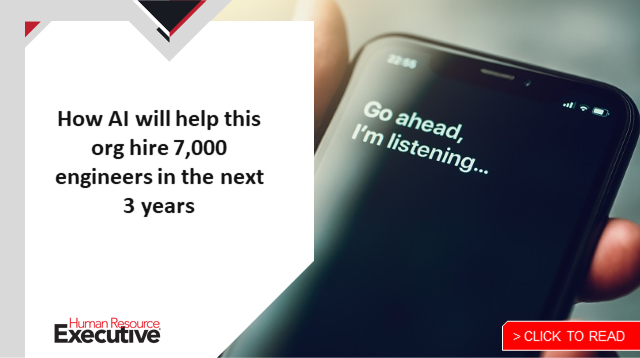Virtual and augmented reality and AI will play a larger and more substantial role in employee experience, training and productivity in the coming year, according to predictions from an array of HR technology solution providers. Industry observers and HR technology vendors agree that these technologies have matured to the point that HR leaders can rely on them to improve employee experience and help attract and retain new talent. Likewise, skills will gain ground in importance, especially in relation to “culture fit,” and employee engagement will continue to be a driving force for HR leaders and chief people officers and their initiatives next year.
To peek into the near future, HRE asked subject matter experts for their take on the top HR technology priorities in 2023, based on their conversations with CHROs and their teams. Last month, we asked HR analysts and industry experts for their thoughts on the top HR tech trends in 2023 and we followed up with thought leaders from leading HR technology firms for their predictions as well. The following are insights from leading HR technology solution providers on the rise of virtual reality, AI, skills and employee experience in current and future HR technology solutions and why HR needs to have them on their radar starting Jan. 1.
Virtual Reality

Ramon Chen
Chief product officer
ActivTrak, a workforce analytics provider
Virtual reality and the metaverse will play a big role as we become increasingly remote and geographically dispersed—but we are still in early stages. Augmented reality is more likely to happen [with the rise in the improvements] of AR glasses, which provide heads-up informational displays to guide and provide information, navigation and translation to employees. And it can increasingly help those with disabilities. Using such technologies to accelerate learning and skill acquisition is also going to be key to the future of work.
Artificial Intelligence
Eric Sydell
Executive vice president of innovation
Modern Hire, a hiring platform provider
Ambiguities around artificial intelligence hiring regulations will become more crystallized [because] AI and analytics are crucial in the effort to remove bias from talent acquisition. Yet “black box” algorithms have the potential to discriminate against various protected and unprotected classes and invade individual privacy, resulting in states and localities taking the matter into their own hands through proposed bills that monitor or regulate how these algorithms should be used. For example, look at New York City’s AEDT (Automated Employment Decision Tools) law.
 With these mixed efforts, there are many obscurities around the guidelines, causing confusion among employers. As more federal guidance is introduced, as with the White House Blueprint for an AI Bill of Rights, we expect to see increased clarity around legislation and how it is intended to enable the harnessing of AI for the good of humanity.
With these mixed efforts, there are many obscurities around the guidelines, causing confusion among employers. As more federal guidance is introduced, as with the White House Blueprint for an AI Bill of Rights, we expect to see increased clarity around legislation and how it is intended to enable the harnessing of AI for the good of humanity.
AI is a transformative technology that must be harnessed to ensure it improves the human condition, but its complexity makes it difficult to regulate easily. 2023 will bring meaningful steps forward with laws encouraging transparency, fairness, and the protection of individual privacy.
Talent Acquisition
Dan Finnigan
CEO
Filtered, technical assessment and recruiting solution provider

The relationship between companies and employees will become more transactional. With the continued prevalence of remote working, hiring decisions will become less based on “culture fit” and similar criteria, and more focused on skills and performance. This will create a more impersonal, transaction approach to hiring—and firing. Companies will be more willing to take risks because they’ll be more willing to quickly let go of people who are not meeting expectations. This will open the door to a much more diverse workforce once “culture fit” is no longer so important. (Talent acquisition will also be a key topic at the 2023 HR Tech Virtual Conference from Feb. 28 to March 2. Register here.)
Desmond Lim
CEO
Workstream, automated hiring platform provider
2023 will be the year of paperless vetting and hiring as employers turn to more efficient methods of hiring through digitization and automation. Antiquated practices that deliver imprecise hiring and onboarding will be removed. We’ll also see a rise in text and social media-based hiring will continue to grow into the top way to hire Gen Z employees.
Employee engagement
Rick Hammell
CEO and founder
Atlas, global talent management provider
This year brought us “quiet quitting,” where employee engagement hit a record low worldwide amidst an economic downturn. Next year, we’ll see organizations prioritize employee engagement internationally in order to prevent both employee burnout and organizational inefficiency due to turnover.
Skills and learning

Megan Smith
Head of HR
SAP North America
Building a talent marketplace with a focus on agility such as transferable skills [will be a top priority for 2023]. Amidst the challenging economic climate and hot labor market—with strong talent moving around with high expectations of their employers—HR leaders will prioritize workforce planning that focuses on building talent pools with transferable skills, so they can quickly flex and fill talent gaps as business strategies shift.
DEI
Grace Savides
HR Software Market Research Analyst
G2, HR and people software provider
Talent management and recruiting tools that put a premium on DEI and on promoting internal growth will become more prevalent in an unstable labor market. As the Great Resignation continues, so does the hunt for fresh, new talent. Attracting a wide range of backgrounds with diversity recruiting software will become a necessity to create a stronger workforce. Pay equity will assist in making sure organizations are putting all employees on an equal footing. Also, skills development will assure that all workers have opportunities to grow. Investing in a workforce will increase resiliency and retention at a time when hiring new workers can be prohibitively expensive.
Virtual care
Karen Frost
Senior vice president, health strategy & solutions
Alight Solutions, an HR and consulting firm
Virtual care is here to stay. We saw an increase in virtual care due to the pandemic but we also saw the longevity of these offerings due to the ease of use and increased access for patients across the country. By the end of 2023, nearly 95% of employers are expected to offer virtual care for medical and behavioral health issues. A majority of employers will offer virtual care solutions beyond traditional telemedicine.
Registration is open for the HR Tech Virtual Conference from Feb. 28 to March 2. Register here.
The post AI and virtual care will be HR technology priorities in 2023 appeared first on HR Executive.